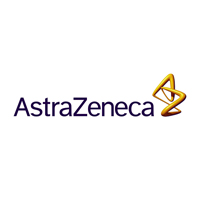AstraZeneca (LON: AZN) has today announced that Qtrilmet (metformin hydrochloride, saxagliptin and dapagliflozin) modified-release tablets have been recommended for marketing authorisation in the European Union for the treatment of adults with type-2 diabetes (T2D).
The Committee for Medicinal Products for Human Use (CHMP) of the European Medicines Agency (EMA) based its positive opinion on data from five Phase III trials which evaluated combinations of Forxiga (dapagliflozin) and Onglyza (saxagliptin) on a background of metformin in patients with inadequately-controlled T2D. The primary endpoint in these trials was mean change from baseline in HbA1c (average blood glucose levels) at week 24 or 52.
Across the trials, the combination of Forxiga, Onglyza and metformin was superior in reducing HbA1c versus Forxiga combined with metformin, Onglyza combined with metformin, or glimepiride combined with metformin. The combination of Forxiga, Onglyza and metformin with or without sulphonylurea (SU) was non-inferior to the combined use of insulin and metformin with or without SU in reducing HbA1c.
The safety results of the individual medicines in these trials were consistent with their known profile.
The CHMP recommended the marketing authorisation for Qtrilmet to improve glycaemic control when metformin with or without SU and either saxagliptin or dapagliflozin does not provide adequate glycaemic control, or when T2D patients are already being treated with metformin, saxagliptin and dapagliflozin.
Qtrilmetis approved in the US under the name Qternmet XR as an adjunct to diet and exercise to improve glycaemic control in adults with T2D.
About Qtrilmet
Qtrilmetis a once-daily, oral medicine comprised of the selective sodium‑glucose co-transporter 2 (SGLT2) inhibitor Forxiga, the dipeptidyl peptidase‑4 (DPP‑4) inhibitor Onglyza and metformin hydrochloride extended release indicated as treatment in adults with T2D.
About AstraZeneca in CVRM
Cardiovascular, Renal & Metabolism (CVRM) together forms one of AstraZeneca’s three therapy areas and is a key growth driver for the Company. By following the science to understand more clearly the underlying links between the heart, kidneys and pancreas, AstraZeneca is investing in a portfolio of medicines to protect organs and improve outcomes by slowing disease progression, reducing risks and tackling co-morbidities. The Company’s ambition is to modify or halt the natural course of CVRM diseases and potentially regenerate organs and restore function, by continuing to deliver transformative science that improves treatment practices and cardiovascular health for millions of patients worldwide.
About AstraZeneca
AstraZeneca is a global, science-led biopharmaceutical company that focuses on the discovery, development and commercialisation of prescription medicines, primarily for the treatment of diseases in three therapy areas – Oncology, Cardiovascular, Renal and Metabolism (CVRM) and Respiratory. AstraZeneca operates in over 100 countries and its innovative medicines are used by millions of patients worldwide.








































